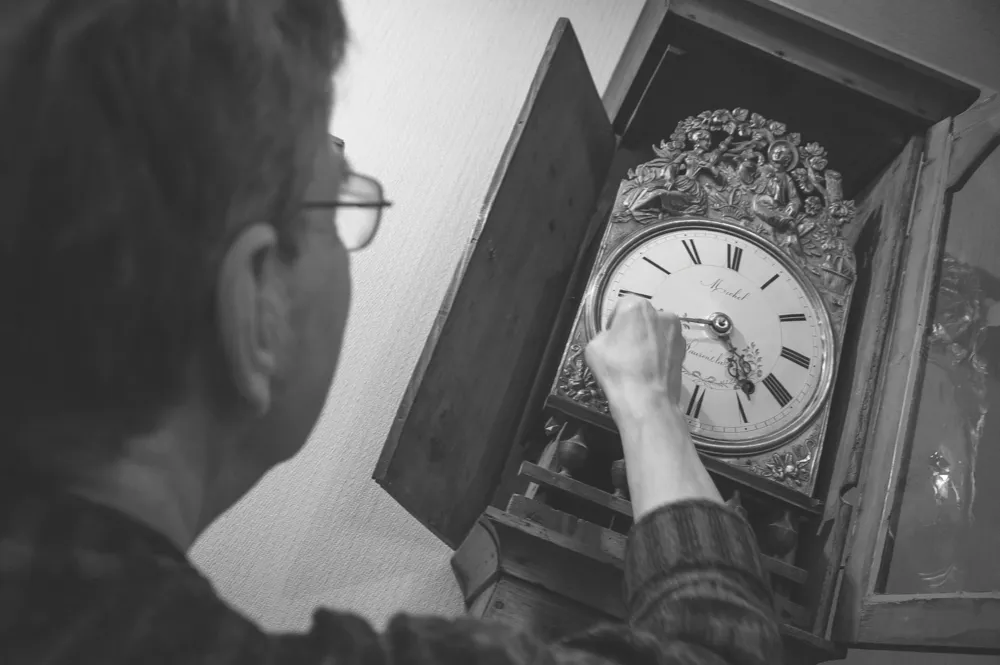As well as being highly decorative furnishing items, longcase clocks are also complex machines with many moving parts, and it is always preferable if they are in good working order. Following proper installation, looking after them well can ensure they function accurately and remain looking their best for years to come. Depending on quality, a well-made and well-maintained clock will keep extremely accurate time - a mid-range longcase should keep time to within 30 seconds a week.

You will need:
- Packing material
- Wooden batten
- Wood screws
- Well-fitting key
- Cloth
- Beeswax
You might also like a clockmakers' grade II-listed village rectory
How to set up a longcase or grandfather clock
- Select a suitable place to display – avoid extreme temperatures, humidity and direct sunlight.
- Make sure your clock is solidly supported and level. All feet should touch the floor to prevent rocking – card or similar may be used under the feet.
- Using a wooden batten bolted to the wall as infill, if necessary, screw the longcase to the batten or wall, to keep it in a vertical position.
- To replace movement in the case, attach weights and pendulum to the movement and replace hood. The movement, pendulum and weights should have been removed during transportation.
- Wind the clock regularly using a well-fitting key. If it’s an eight-day movement, winding it on the same day of the week helps.
- Turn hands clockwise to adjust the time. Pause to allow striking as necessary.
- To regulate, alter the length of the pendulum, usually by turning a nut on the threaded rod supporting the bob.
- If the case is made from wood, a soft duster and beeswax polish can be used sparingly. Glass panels on the hood can be cleaned with a proprietary product, but avoid cleaning fluid coming in contact with other parts.
- Never oil clocks yourself. Movements should be lightly oiled by a professional every six years, and a full overhaul every 12 years is recommended.
